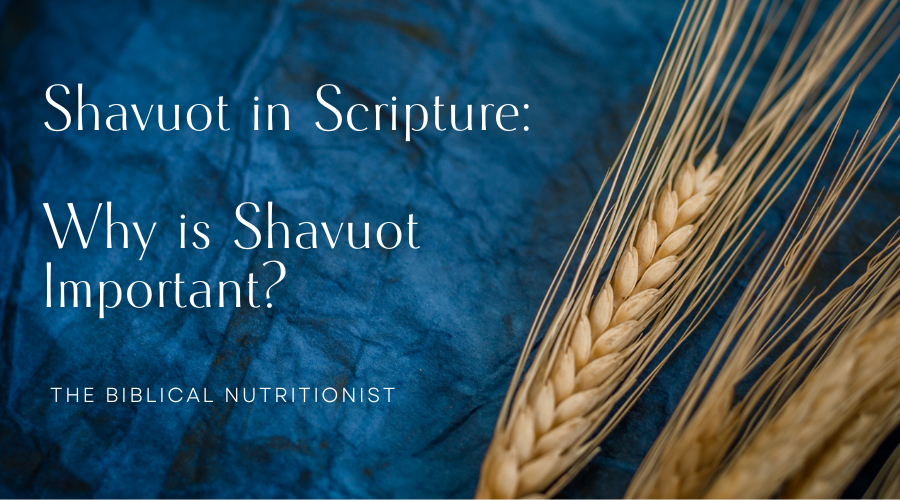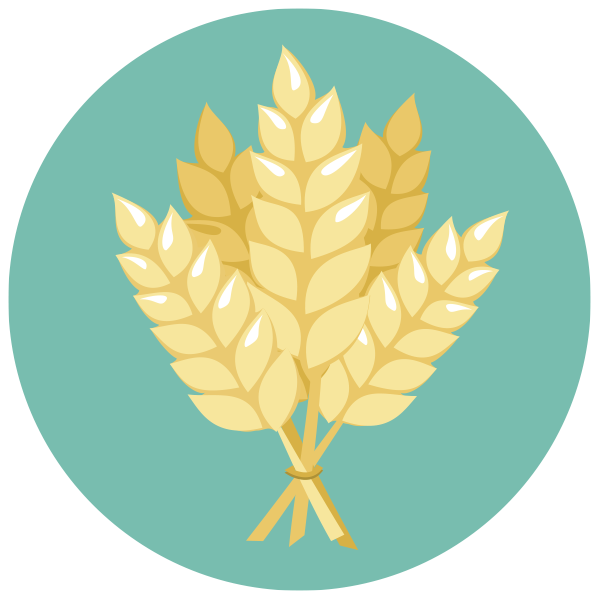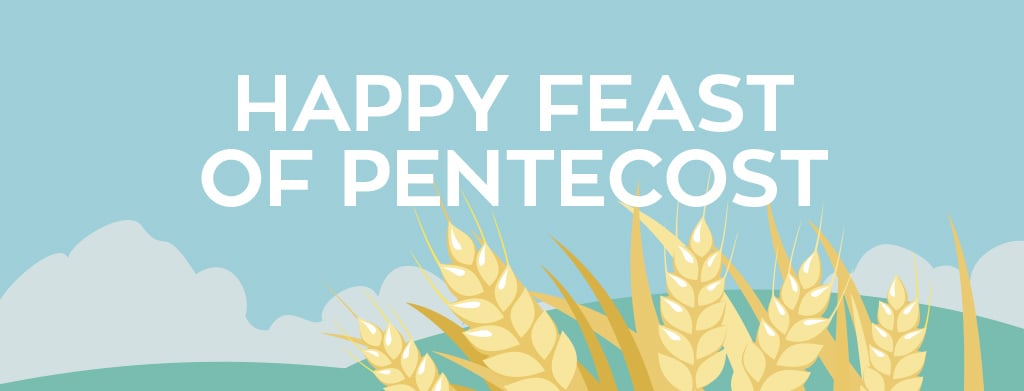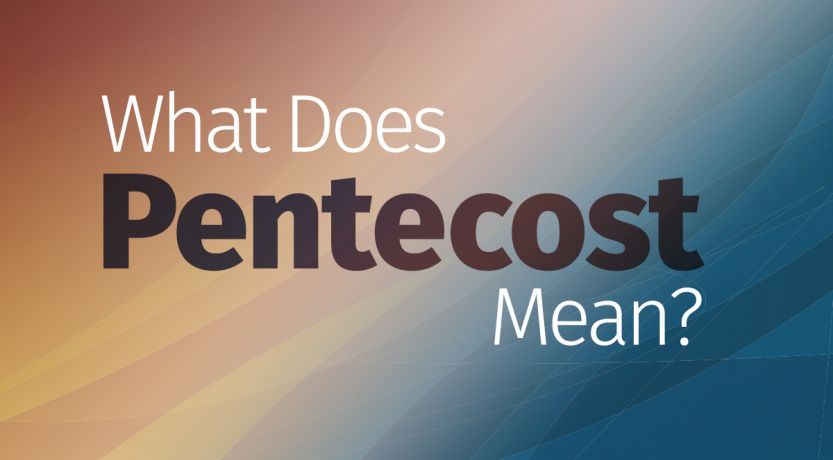.
Shavuot in Scripture: Why is Shavuot Important?
Pentecost is today, Sunday, 28 June, 2023.
“Most Christians today don’t celebrate or are knowledgeable about Jewish (Old Testament) holy days. Yet, there is great benefit to believers in digging into and experiencing the culture and meaning behind the various festivals. Today, we’re looking at why Christians should celebrate Shavuot.
Perhaps you desire to know more or want to connect the Old Testament and New Testament in a way that will help your kids remember it.
Celebrating the Feasts of our Lord is the best teaching tool we as parents and grandparents can use to instill God’s Word, story, and truths in the hearts of our children.
If you have a longing to teach them all that God is and why it matters, this is a great addition to family traditions. I still remember stories that were told to me when I was very young. In fact, in grade school our music teacher was also the music leader at his church. So our musical in 4th grade school was Daniel in the Lion’s Den. I ‘ll never forget those songs or stories.
The same is true today. As we teach God’s Word to our kids – let them sing the stories, read the stories, enact the stories, and celebrate the stories – they too will never forget. I hope you agree that these are great reasons as to why Christians should celebrate Shavuot.
Shavuot In Scripture
Let’s turn to the Bible for a moment. In Scripture, Shavuot is known as “the Feast of Weeks.” Later, in the New Testament, it becomes Pentecost. The following Bible verses show us what the Bible says about this special feast.
Exodus 34:22 You shall celebrate the Feast of Weeks, that is, the first fruits of the wheat harvest, and the Feast of Ingathering at the turn of the year.
Numbers 28:26 ‘Also on the day of the first fruits, when you present a new grain offering to the Lord in your Feast of Weeks, you shall have a holy convocation; you shall do no laborious work.
Deuteronomy 16:10 Then you shall celebrate the Feast of Weeks to the Lord your God with a tribute of a freewill offering of your hand, which you shall give just as the Lord your God blesses you;
Acts 2:1-4 When the day of Pentecost had come, they were all together in one place. And suddenly there came from heaven a noise like a violent rushing wind, and it filled the whole house where they were sitting. And there appeared to them tongues as of fire distributing themselves, and they rested on each one of them.
Now let’s talk about why Shavuot (or Pentecost) matters.
Why Is Shavuot So Important?
Shavuot is one of those favorite stories to relive. God has something important to convey in it and that’s why He set it aside as one of the Feasts of our Lord.
In fact, it was so important that God commanded the Jewish people to come to Jerusalem each year to celebrate Shavuot, also known as the Feast of Weeks.
But why is the festival of Shavuot so important to us today? Glad you asked.
This is my personal take on Shavuot and why we as Christians should celebrate this Jewish tradition every year.
1. God's Holy Law
 Shavuot is a reminder of God’s laws (the ten commandments) written on the tablets of stone. It helps to always be reminded of how God delivered the laws on Mt Sinai and read as a family the verses where the experience was recorded.
Shavuot is a reminder of God’s laws (the ten commandments) written on the tablets of stone. It helps to always be reminded of how God delivered the laws on Mt Sinai and read as a family the verses where the experience was recorded.
And all the people were watching and hearing the thunder and the lightning flashes, and the sound of the trumpet, and the mountain smoking; and when the people saw it all, they trembled and stood at a distance. Exodus 20:18 Lightning, flashes, thunder, smoke (fire). Things we can all relate to.
Jewish teachings relay that Moses received the Law on the 50th day after Passover. (Exodus 19:1)
We can also note that when Moses came down from the mountain 40 days later, there was a golden calf waiting for him. The people had rebelled against the God who rescued them out of slavery and sustained them day-to-day and created their own god.
The Lord was understandably angry. On that day around 3,000 Israelites were killed.
God is very serious about His Words and His promises!
2. Promise Delivered
We see Shavuot celebrated in the book of Acts as the disciples, who were Jews, plus many more people gathered together.
When the day of Pentecost had come, they were all together in one place. And suddenly a noise like a violent rushing wind came from heaven, and it filled the whole house where they were sitting. And tongues that looked like fire appeared to them, distributing themselves, and a tongue rested on each one of them. And they were all filled with the Holy Spirit and began to speak with different tongues, as the Spirit was giving them the ability to speak out. Acts 2:1-4
This experience told to us by Luke is an example of God delivering on His promise from the book of John.
…but an hour is coming and now is when true worshipers shall worship the Father in spirit and truth for such people the Father seeks to be His worshippers. God is spirit and those who worship him must worship in spirit and truth. John 4:23-4
But the Helper, the Holy Spirit who the father will send in my name he will teach you all things and bring to your remembrance all that I said to you! John 14:26
That is reason enough to celebrate the Feast of Weeks – Shavuot!
We need reminders of what God has given us. We need the Holy Spirit to bring to remembrance all that God’s Word teaches us.
Jesus the Messiah delivered on His promise! And He is still delivering on His promises today.
Shavuot is about deliverance from bondage and also deliverance from the evils of this world. These are amazing promises of the Lord!
The Feast of Weeks is celebrating God’s faithfulness in maintaining His covenant and fulfilling His promises. There’s a distinct connection between fulfilled promises of the Lord and Pentecost, when Shavuot begins, in the early church.
This particular Pentecost, or Shavuot, is when God gave the law written in the hearts of the people through the Holy Spirit.
3. Languages
 In my upbringing, we rarely talked about the early disciples’ Pentecost experience because it brought up the hard-to-answer question about ‘tongues’.
In my upbringing, we rarely talked about the early disciples’ Pentecost experience because it brought up the hard-to-answer question about ‘tongues’.
This is not hard to explain when it’s learned in the context and original language of the time.
When God delivered the tablets of stone – the laws – in Exodus 20:18, it says “the people perceived the thunder and lightning flashes and the sound of the trumpet and the mountain smoking and when the people saw it they trembled and stood at a distance.”
This thundering is each person hearing God’s voice. The Israelites on the mountain were hearing God speak.
The tongues in Acts are the languages to spread the Gospel to all peoples. The people outside the room where the disciples were being given the gift of the Holy Spirit heard the Gospel for the first time in their own language. People traveled from miles around, there would have been people in Jerusalem from all over. Some authorities say there could have been a million people in Jerusalem that day. The sound coming from the room to the outside was the Gospel and those hearing it were being saved in their own language. Around 3,000 were saved that day.
It was never about confusion. That’s a misinterpretation. Tongues mean languages. It was and always is about the Gospel. And the people who needed to hear it. Heard it in their language. Today we have the power of the Holy Spirit to share the Gospel with all people. God will supply the words. We are not to let nationalities or languages cause us to hesitate our call.
4. Thanksgiving
Shavuot is a feast of thanksgiving. Thanking God for the harvest, historically wheat and barley. People bring gifts as a sacrifice, gifts from their produce. We too need to celebrate with a feast of thanksgiving. Thanking God for the complete assurance of salvation by grace through faith in Christ Jesus. Gratitude for the gift of the Holy Spirit, who is our helper. Celebrating Shavuot helps us teach our kids about the Holy Spirit and how He guides us on a daily basis.
Are you interested in learning more about the feasts of the Lord and how we can celebrate them?
For free celebration guides, devotionals, decor ideas, activities for kids, and quick, easy teachings on each feast (including Shavuot), click here.
5. Leaven
 At Passover, we removed all the leaven from the home. (Leaven represents sin in our lives.) During Shavuot, we’re given new leaven. Leaven also means teachings.
At Passover, we removed all the leaven from the home. (Leaven represents sin in our lives.) During Shavuot, we’re given new leaven. Leaven also means teachings.
Yeshua (Jesus) explained that leaven represents teachings and we are not to learn from the Pharisees, who focus on traditions and doctrines. Instead, we’re to learn from God’s Word. In the first chapter of the Treasures of Healthy Living Bible Study, we discuss how there’s as much to unlearn as there is to learn. As we study scriptures for ourselves and teach our kids to do the same, the Holy Spirit guides us. There are many gifted and blessed teachers we can learn from. Yet the Word is always the final authority.
Celebrate Shavuot
 As we celebrate Shavuot, it doesn’t have to be in the traditional Jewish nature. We celebrate with music, singing, sharing praises, enjoying a feast, fellowship, and reading the story of Ruth with some fun antics added in. Then we pray for our nation and for Israel. Consider Acts 2:42-43: They were continually devoting themselves to the apostles teaching and to fellowship to breaking of bread and to prayer. Everyone kept feeling a sense of awe and many wonders and signs were taking place through the apostles.
As we celebrate Shavuot, it doesn’t have to be in the traditional Jewish nature. We celebrate with music, singing, sharing praises, enjoying a feast, fellowship, and reading the story of Ruth with some fun antics added in. Then we pray for our nation and for Israel. Consider Acts 2:42-43: They were continually devoting themselves to the apostles teaching and to fellowship to breaking of bread and to prayer. Everyone kept feeling a sense of awe and many wonders and signs were taking place through the apostles.
Later, in chapter 3, a man was healed. And leaping up, he stood and began to walk; and he entered the temple with them, walking and leaping and praising God. And all the people saw him walking and praising God. Acts 3:8-9 This is why we celebrate the Feasts of Our Lord. We are to live in such a way that people say, “Times are hard. Why are you walking and leaping and praising God?”
Our world can be chaotic and worrisome. Just in the most recent times our gas was shut down, we have COVID fear, and bombs are going off in Israel. There are always a host of hard, painful, and tragic things occurring in this broken, fallen world. Yes, I know these things. I don’t ignore them, but I know the God who knows all and loves me beyond all measure. That He is still good and He is still in control.
Therefore, I’m going to walk and leap and praise God. The Bible isn’t just great stories. It’s Jesus in real time. And because of Him, we rejoice in His Word, His revelation, His redemption, and so much more.
Shavuot is another great opportunity to take a break from our normal routines and set aside special time to remember and celebrate God’s faithfulness.
Are you ready to celebrate Shavuot with your family? I hope and pray so!” From: https://thebiblicalnutritionist.com/why-christians-celebrate-shavuot/
________
See also: https://lifehopeandtruth.com/life/plan-of-salvation/pentecost/from-pentecost-to-pentecostalism/
________
“Almost 2,000 years ago, on the Day of Pentecost, God gave His Church a powerful gift: His very Spirit.
We may not have visible tongues of fire on our heads today, but
with God’s Spirit we can miraculously transform our hearts and
minds daily and take on God’s character.”

“Learn about the significance of the wave sheaf offering
and its connection to the festival of Pentecost.”

“Refresh your understanding on what it means to be
a “firstfruit” and on what the character of a firstfruit
looks like.”

“Discover the power that can guide and direct us daily,
enabling us to have the mind of Christ.”
“Have a refreshing and joyous Feast of Pentecost!”
Join other parents, grandparents and guardians to discuss how they are using the EEI Parenting Manual to teach their children in our Facebook Group.
From: https://lifehopeandtruth.com/learning-center/youth-development/the-word-of-god/feast-of-pentecost/?
_______
How Much Cancer Does Lunch Meat Cause?
“Why does the leading cancer and diet authority recommend we avoid bacon, ham, hot dogs, sausage, and all other processed meats—including chicken and turkey?
The most comprehensive summary of evidence on diet and cancer ever compiled recommends we should eat mostly foods of plant origin to help prevent cancer. This means centering one’s diet around plant foods. Not just whole grains and beans every day, but every meal.
And, when it came to foods that may increase cancer risk, they were similarly bold. Unlike many other dietary guidelines that wimp out, and just advise people to “moderate” their intake of bad foods, like eat less candy. The cancer guidelines didn’t mince words when it came to the worst of the worst. For example, don’t just minimize soda intake, avoid it. Don’t just cut back on bacon, ham, hot dogs, sausage, and lunch meats, but avoid processed meats, period, because data do not show any level of intake that can confidently be shown not to be associated with risk.
Processed meat cannot only be thought of as a powerful multi-organ carcinogen, but may increase the risk of heart disease and diabetes. Red meat was bad, but processed meat was worse, and that included white meat, like chicken and turkey slices. So, with more heart disease, cancer, and diabetes, it’s no surprise processed meat consumption has been associated with increased risk of death.
In Europe, they calculated that reduction of processed meat consumption to less than 1/4 a hot dog a day [sic – – should be half a hot dog] would prevent more than 3% of all deaths.
This was the second largest prospective study ever done on diet and cancer, a study of more than 400,000 people. The largest ever, 600,000, was done here in the US, the AARP study. They found the preventable fraction to be much higher, suggesting, for example, that 20% of heart disease deaths among women could be averted if the highest consumers cut down to like less than a half strip of bacon a day.
To see any graphs, charts, graphics, images, and quotes to which Dr. Greger may be referring, watch the above video. This is just an approximation of the audio contributed by Katie Schloer.
DOCTOR'S NOTE
“The World Health Organization recently published a report that puts chicken nuggets, deli turkey slices, bacon and other processed meats in the same category as cigarettes and asbestos: known carcinogens. According to independent research cited by the WHO, the deaths of 34,000 people from cancer every year are attributable to diets high in processed meat, in addition to the 800,000 additional deaths due to cases of diabetes and heart disease. That’s a meat-borne epidemic every year.” From: https://nutritionfacts.org/video/how-much-cancer-does-lunch-meat-cause/
________
More on processed meat can be found in videos such as:
- How to Avoid Phosphate Additives
- Autopsy of Chicken Nuggets
- Bacon, Eggs, and Gestational Diabetes During Pregnancy
- Why Is Meat a Risk Factor for Diabetes?
- The Palatability of Cancer Prevention
- Meat Industry Reaction to New Cancer Guidelines
- How Much Cancer Does Processed Meat Cause?
- IARC: Processed Meat Like Bacon Causes Cancer
But cancer risk has been associated with unprocessed meat as well via a variety of potential mechanisms:
- PhIP: The Three Strikes Breast Carcinogen
- Meat Fumes: Dietary Secondhand Smoke
- How Many Cancers Have Been Caused by Arsenic-Laced Chicken?
- Prevent Cancer from Going on TOR
- Starving Cancer with Methionine Restriction
- Zeranol Use in Meat and Breast Cancer
_____



 “Pentecost, (Sunday, May 28th, this year) has special meaning for people of all nationalities and backgrounds. It marks the beginning of the Church, the gift of the Holy Spirit and more.
“Pentecost, (Sunday, May 28th, this year) has special meaning for people of all nationalities and backgrounds. It marks the beginning of the Church, the gift of the Holy Spirit and more. “Does God have a plan for you? Is He calling you to deeper understanding of His truth? Is He asking you to make changes that will benefit you now—and forever?
“Does God have a plan for you? Is He calling you to deeper understanding of His truth? Is He asking you to make changes that will benefit you now—and forever?
 From the time of Cain and Abel, offenses and conflicts have been incessant human problems. And the Bible warns that in the end time, many will be offended (Matthew 24:10).
From the time of Cain and Abel, offenses and conflicts have been incessant human problems. And the Bible warns that in the end time, many will be offended (Matthew 24:10).













